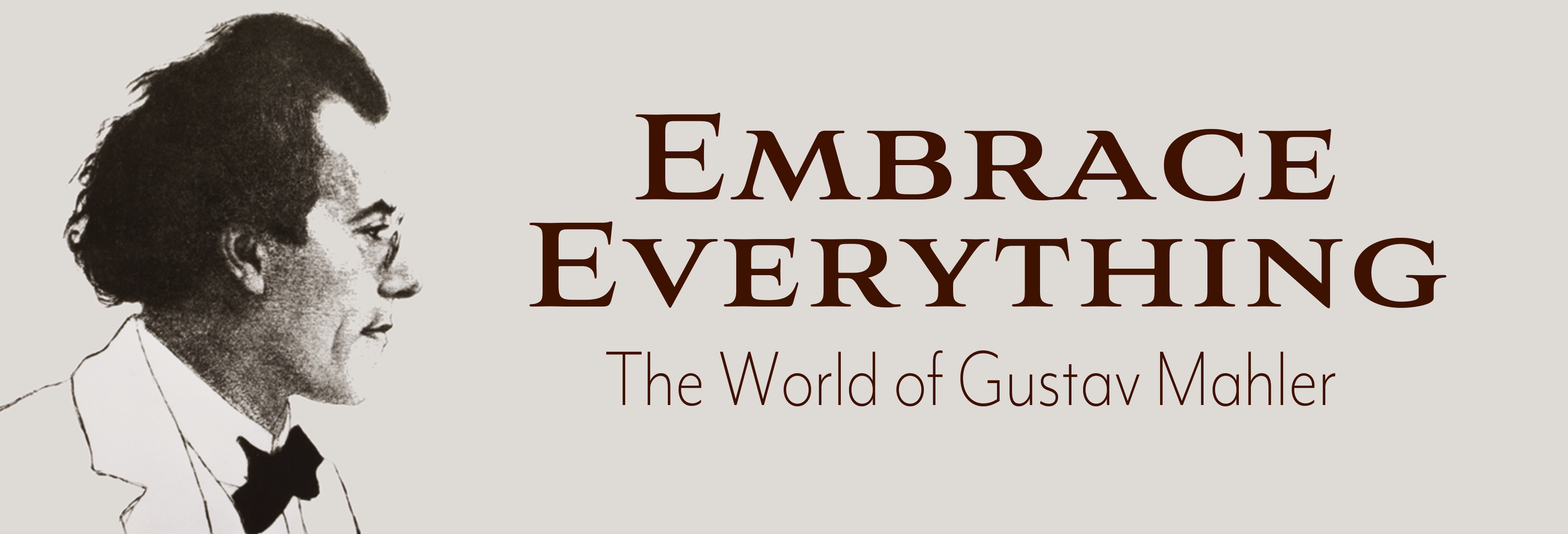
It's ironic that Mahler 4 is his shortest symphony, but our biggest season. We have almost 40 voices across the new episodes. All our regular cast members are back, plus some new ones that I know listeners will enjoy. We’ve continued our format of one episode per movement, and we've also added some exciting new elements. This season we have a history episode (about the premiere of Mahler's Fourth Symphony) and a music lesson episode (featuring a piano demonstration of the seven main themes of the first movement). We wrap it up with a look ahead to Season 5.
Embrace Everything is the collaborative effort of our incredible production team of ten people. Tragically, we lost Paul Thomason to cancer in March of 2023, just two months after the completion of Season 3. Paul was one of our editors and, personally, a dear friend. Our new Season 4 is dedicated to him.
After we lost Paul, I set out to find someone to fill his place, and Jenny Lawton joined us as Senior Editor. Jenny is a wildly gifted storyteller. Her musical and artistic ideas line up perfectly with my own sensibilities, and she has an exceptional ear for editing. Season 4 has benefitted tremendously from Jenny’s spectacular talents. My preference has always been to have a large team of trusted editors on our series, and Jenny therefore joined an amazing team of four other editors, including Merrin Lazyan, Jamie Katz, Will Berger and Marilyn McCoy (all of whom have been with us since the beginning).


I was honored to be selected for a one-month residency at the Rockefeller Foundation’s Bellagio Center in Italy. I spent February 2025 living there and working on the final stages of Season 4 while exchanging ideas with an incredible cohort of international fellows. The projects selected are meant to benefit humanity and I am so honored that our project about Mahler’s music was selected. Mahler was known for his small composing huts built in the woods, where he wrote his symphonies, and I couldn’t help but feel a wonderful parallel. As I set up my microphone and recorded my voice during my time in Bellagio, I did it while looking out at the forest, the lake, and the mountains across the water, the same elements that inspired Mahler to compose his music in the first place.
My research for Season 4 was more intense than previous seasons because there has been disagreement within the Mahler community about the meaning of the Fourth Symphony. Scholars may quibble over small details of Mahler’s first three symphonies, but they basically agree on the musical messages he meant to impart. After reading all the literature on the Fourth, I had to untangle completely opposing viewpoints. For instance, one commentator described the symphony as “a great cheerfulness, an unearthly joy,” while another called it “probably the darkest of all his symphonies.”
When speaking about the Fourth Symphony, Mahler told his soon-to-be wife, Alma Schindler, “It’s all humor.” I kept coming back to this comment. It felt like the key to the whole symphony. And listening to the music, I could hear so much humor in it. But what about the third movement, with its sections of overpowering darkness and tragedy? That certainly didn’t seem funny. So how to reconcile this with Mahler’s comment?
The answer came when I read the book The Pleasures of Abandonment: Jean Paul and the Life of Humor by Paul Fleming. My research had taken me to Jean Paul Richter, one of Mahler’s favorite authors, and I’d begun reading his works. But when I read this book, the parallels between Jean Paul and Mahler became crystal clear. Jean Paul categorized different kinds of humor, and each movement of the symphony can be seen through the lens of his humor, including the third movement with its moments of deep tragedy. With this revelation, I believe I’d found the key to what Mahler was talking about when he said his Fourth Symphony was all humor.

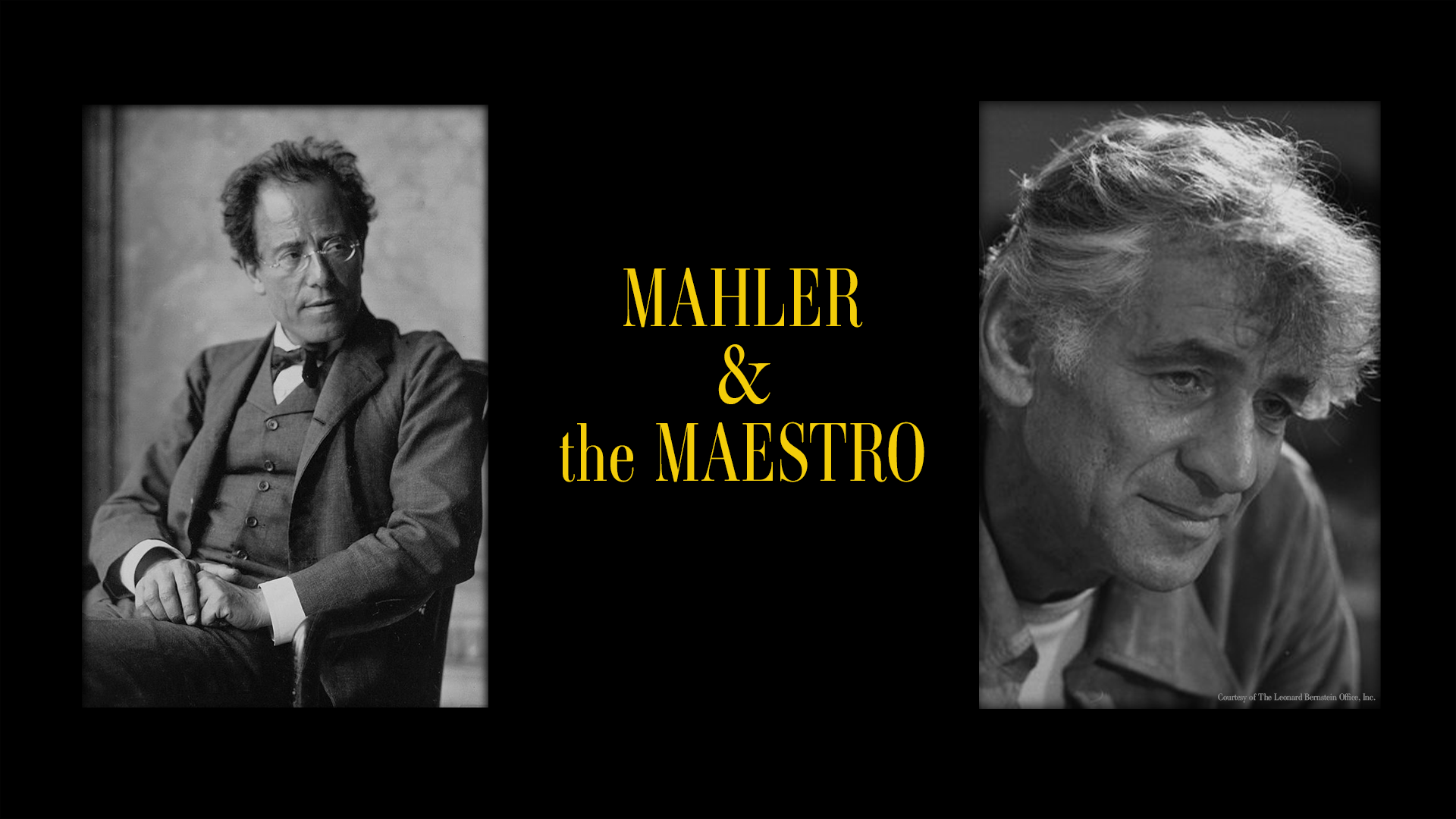

In September 2023 I reached out to Leonard Bernstein’s daughter Jamie to request an interview for Season 4 of our podcast. In her autobiography, Famous Father Girl, Jamie spoke especially fondly of Mahler’s Fourth Symphony, and I thought she’d be a terrific guest for our new season. Jamie replied she’d be happy to speak with me. The next week I received an email from Christine Sun, a publicist at Netflix, who was arranging Jamie’s interviews, most of which were for the upcoming Maestro film, a biopic about her father, scheduled for release in late November. I’d been hearing about the filming of Maestro for some time and read that Mahler’s Second Symphony would make a prominent appearance. When I got on the phone with Christine, we discussed scheduling Jamie’s interview, but also the upcoming Netflix film. Leonard Bernstein is one of my musical heroes, and without question one of the greatest Mahler interpreters the world has ever seen. I wondered if perhaps we should think about a project tied to the film.
By the time Jamie arrived at the studio for our interview in November, I’d seen an advance screening of Maestro, and decided I’d talk to her about both Mahler’s Fourth Symphony and the film. Of course, Jamie was absolutely wonderful, and had so many interesting and insightful stories about her father and her family. Shortly afterwards I decided we would create something around Jamie and the Maestro film as part of our podcast. But what should it be? I considered a series of four short episodes using the film as a springboard to discuss various aspects of Leonard Bernstein’s affinity for Mahler’s music. Eventually I settled on a single episode, but it would be substantial, and we needed one more interview to add historical context to the stories Jamie had told me. This led to an interview with Gabe Smith, the Director of Archives and Exhibitions at the New York Philharmonic, in December.
Shortly after this I asked Caroline Heaney, publicist for the New York Philharmonic, if we could partner on the project to create a video version of the episode, making use of the treasure trove of archival images housed in their archives. Caroline liked the idea and in January 2024 we had our first meeting of the complete production team that would create Mahler & the Maestro. Gabe Smith and Meredith Self (also working in the archives) selected documents and images we’d need, and Brigid McCormick expertly assembled and edited the video. I was constantly delighted with what this exceptionally talented team came up with, and the end results speak to a wonderful collaboration.

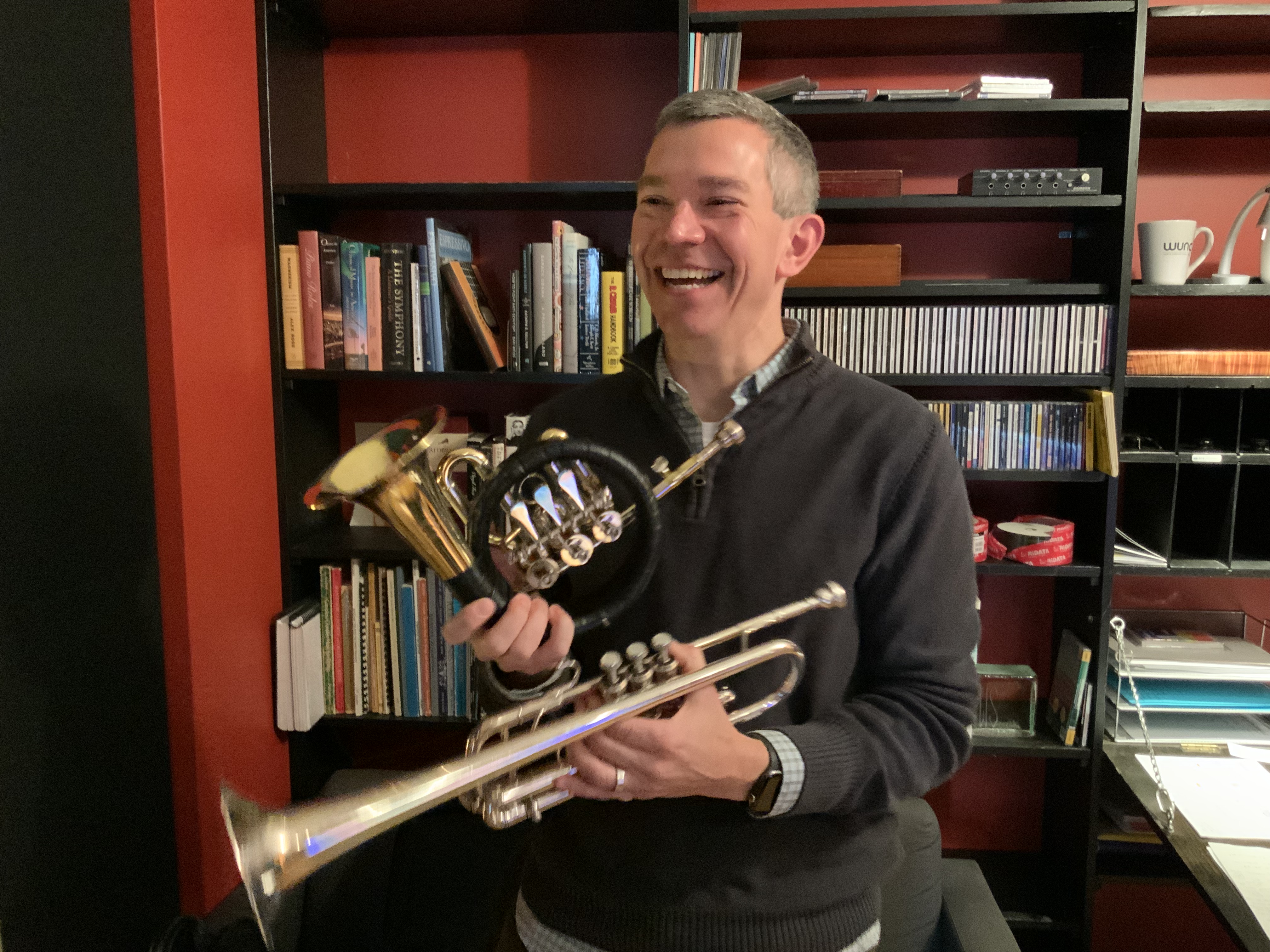

Season 3 of Embrace Everything, much like Mahler’s Third Symphony, has been a mammoth undertaking. It’s our biggest season so far, with 6 episodes and a sprawling cast of 25 different voices meditating on Mahler’s Third Symphony, 100 minutes of luminous music which underscores the entire season.
One of the challenges this season was figuring out how the philosopher Friedrich Nietzsche would fit into the episodes. I tried reading Nietzsche many years ago but always felt I was being yelled at. Upon learning that Mahler was immersed in Nietzsche when composing the Third Symphony, my first thought was, “How is this going to work? I’m going to hire an actor who will yell at our audience during Mahler’s music?” Clearly, I needed to do some research, and began a much more nuanced exploration of Nietzsche, particularly the books that Mahler referenced. I realized I was wrong. Nietzsche wasn’t yelling at me. He was writing with such poetic fire that it was impossible not to feel the fervor of his words (along with the ideas behind them). And the important question for our program was, “What part of Nietzsche’s writings pertained to the Third Symphony?” Mahler did with Nietzsche exactly what he’d done with many of the texts that inspired him- He selected the elements he liked, adapted them to his needs, and inserted them into his symphony. As I whittled down the potential Nietzsche quotes to be included in our programs, I was introduced to the actor Paul Hecht. As you’ll hear when you listen to the season, Paul’s done a wonderful job bringing Nietzsche to life for us.
It’s been such a great joy to continue working with the original editorial, technical and artistic team that was assembled back in 2018, when production of this series began in earnest. They have become like a family for me. James Lurie, our marvelous voice of Gustav Mahler, has outdone himself in Season 3. My team of script editors helped find both the strengths and weaknesses in my scripts, and then pushed the episodes to be the best they could be. Rick Kwan, an audio maestro of unparalleled sonic wizardry, made our complex audio productions sound glorious. And then there is our Musical & Historical Advisor, Marilyn McCoy. Marilyn has been more involved in our editing process during Season 3, and I’ve learned that an episode isn’t really finished until it passes the “awesome” test with her. When Marilyn hears an early draft, she’s typically enthusiastic. Only when she hears a draft and proclaims, “This is awesome!” do I know the episode is truly finished.

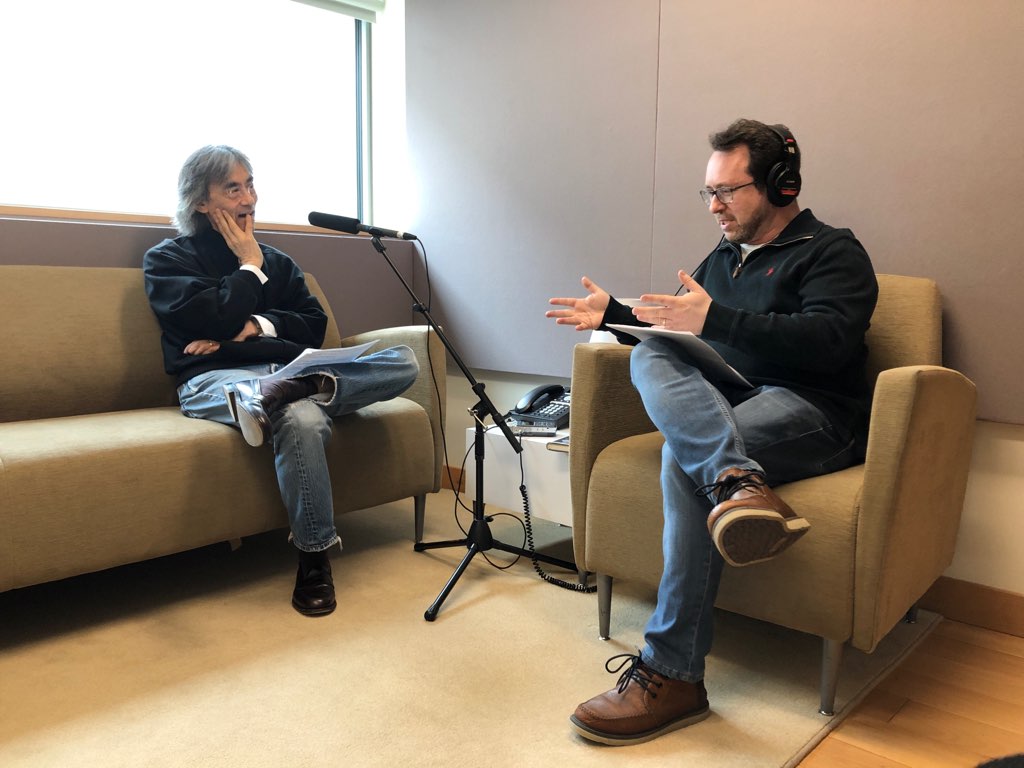

When I began working on this series of documentaries on Mahler’s symphonies many years ago, I couldn’t have known just how much the subject matter and the music would console me during such a momentous time. Listeners come to Mahler’s Second Symphony when they need comfort during times of great loss. I can’t imagine a more relevant time than now. As we collectively process the trauma of a global pandemic, there’s a release that comes from thinking of life and loss through Mahler’s musical lens.
Like Season 1, the creation of Season 2 was a voyage of discovery. The voyage began in 2017, when I conducted 12 hours of interviews about Mahler’s Second Symphony with Columbia University Professor Marilyn McCoy (who is now the “Musical & Historical Advisor” for our series). The next year I collected further interviews by traveling to Cleveland, Montreal, and Berlin to speak with orchestral musicians about their experiences with Mahler’s Second. More interviews were conducted from New York in the years that followed, as well as the voiceover of Mahler himself, portrayed by the exceptional actor James Lurie.
The final months of production were like a gigantic aircraft flying through the clouds, preparing to land after a long journey. The clouds start to disappear, and you get a brief glimpse of the ground below. At last the runway was in sight, and we came in for a smooth landing on July 7, 2021, just in time for Mahler’s birthday.

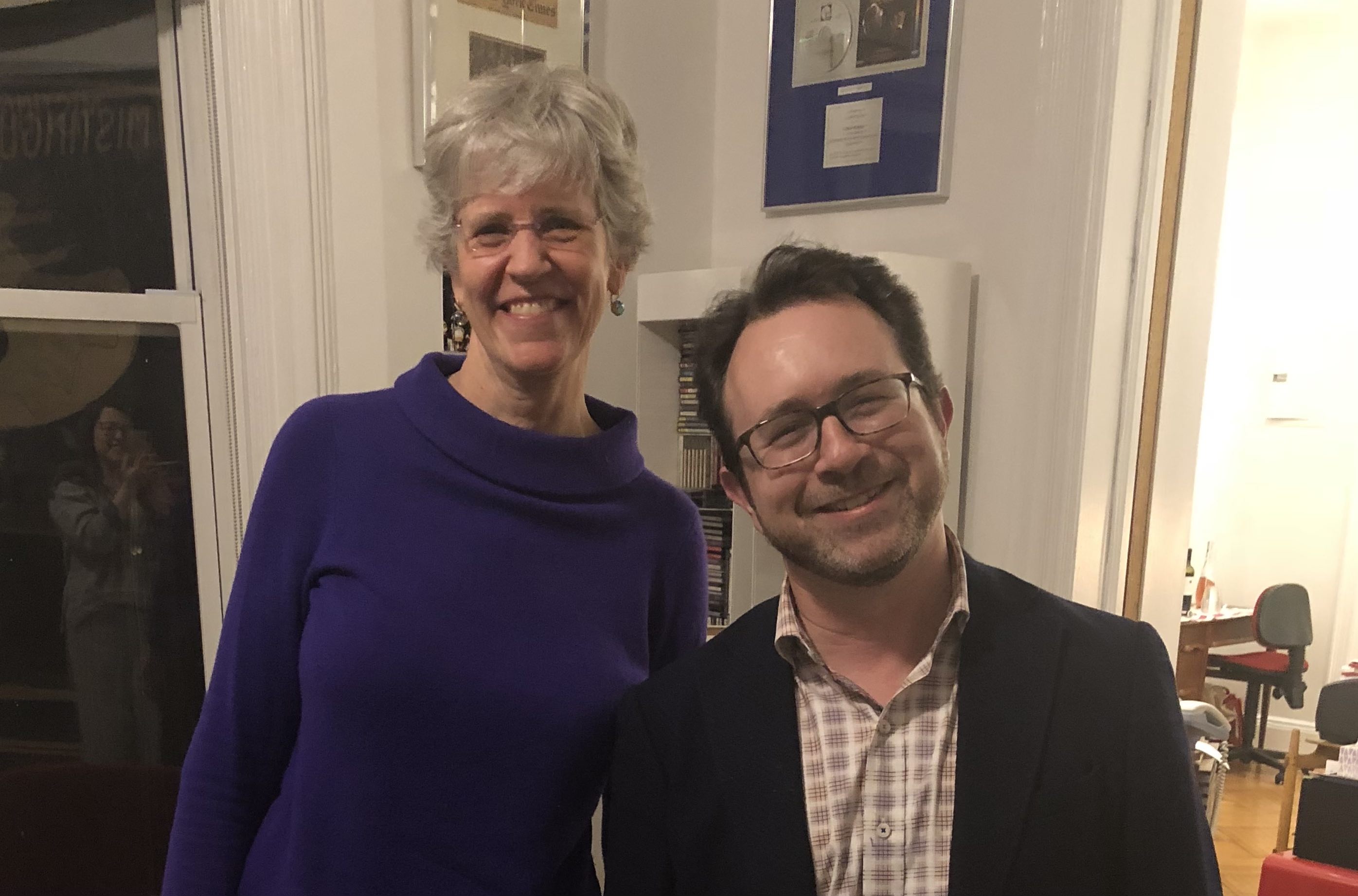

What is it about Mahler’s music that attracts me so strongly? The reasons are detailed in these programs, but there’s a comparison I think illustrates it well. In 2004 I went on a memorable trip to Helsinki, Finland. The Finns have a famous tradition of steaming themselves in the sauna, followed immediately by a quick dip in the Baltic Sea. I read about this tradition before my trip, and was puzzled by it. Why would anyone want that contrast so quickly? But if the whole country was into this practice, there must be something to it. And so, towards the end of my stay in Helsinki, I stepped into a roasting hot sauna, mildly cooked myself, and then tepidly made my way into the Baltic, neck deep. And then, unexpectedly, once I was out of the water, the most wonderful sense of euphoria overtook me. The contrast of the senses, so quickly, was wildly invigorating. For me, this is something along the lines of what Mahler does in music. By taking us to the extremes as only he can, by visiting so many aspects of human experience side by side, the listener comes away euphoric. I know I certainly do.
I decided to create a Mahler series in 2010, although how I would do it, or what it would be, I wasn’t sure. I read extensively about Mahler, made a trip to Vienna in 2012 to visit Mahler-related sights, and produced a short intermission feature on Mahler’s Second Symphony for a Carnegie Hall Live radio broadcast on WQXR. By 2015 I was ready to begin work on a long-form series, and conducted the first interview for Embrace Everything. Since then, I’ve recorded more than 50 interviews about Mahler, and there are many more still to be conducted.
One of the great pleasures in producing these programs has been the personal journey I’ve gone on to create them. I first discovered Mahler’s symphonies as a teenager, and as I’ve moved through life, my appreciation for them has deepened immensely. I’m not sure exactly when his symphonies became an obsession, but I do remember it became important to map out my Mahler concert season in advance, putting all the Mahler performances on my calendar and buying tickets well ahead of time. And as much as I adore these pieces, the research involved to create these programs took me much further into the music than I’d ever been. Diving into the interviews forced me to ask why Mahler made the musical choices he had. The next challenge was finding creative ways to put the interview material alongside the music, to marry them together in a way that made sense, and this brought me even closer to the sonic landscape Mahler had created. The four episodes in Season 1, on Mahler’s First Symphony, have had a lengthy incubation period, but it’s been extremely rewarding.
Contact: aaron@theworldofgustavmahler.org
***
Aaron Cohen has worked for New York Public Radio for 20 years, in many different capacities, including his current role as Director of On-Air Operations. He’s an award-winning producer, and has created radio features for WNYC, WQXR, the Metropolitan Opera, American Public Media, and the Canadian Broadcasting Corporation. Before his life in radio, Aaron was a professional oboist.